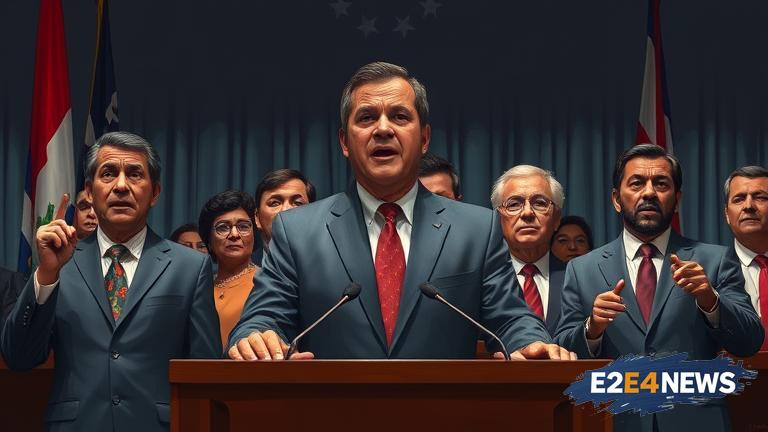In a surprise announcement, the cabinet of Costa Rica’s President has resigned en masse, marking a significant shift in the country’s political landscape. The move is seen as a strategic attempt to secure a congressional majority, allowing the President to push through key reforms and policy changes. The resignation of the entire cabinet has sent shockwaves throughout the country, with many citizens and opposition parties left wondering about the motivations behind this drastic decision. According to sources, the President’s decision to ask for the resignation of the cabinet was made in order to facilitate a major overhaul of the government. The move is expected to lead to significant changes in the country’s policies, including economic reforms, environmental initiatives, and social programs. The President has stated that the resignation of the cabinet is a necessary step towards achieving a more efficient and effective government. The opposition parties have expressed concerns about the implications of this move, citing potential instability and lack of continuity in government. However, the President’s supporters argue that the move is necessary to break the political gridlock that has hindered progress in the country. The resignation of the cabinet has also sparked debate about the role of the President in Costa Rican politics, with some arguing that the move represents an attempt to consolidate power. Despite the controversy, the President remains committed to pushing through the reforms, citing the need for urgent action to address the country’s pressing challenges. The international community is watching the developments in Costa Rica with interest, as the country has long been seen as a beacon of stability and democracy in the region. The resignation of the cabinet has also raised questions about the potential impact on the country’s economy, with some investors expressing concerns about the uncertainty and potential instability. However, others argue that the move could lead to increased investment and economic growth, as the government seeks to implement business-friendly reforms. The President has reassured citizens and investors that the government remains committed to maintaining stability and promoting economic growth. As the country navigates this period of uncertainty, the President’s popularity is being closely watched, with some polls indicating a decline in support. Despite this, the President remains confident that the reforms will ultimately benefit the country and its citizens. The opposition parties are expected to continue to voice their concerns and criticisms, as the country heads towards a potentially tumultuous period in its political history. The resignation of the cabinet has also sparked a wider debate about the state of democracy in Costa Rica, with some arguing that the move represents a threat to the country’s democratic institutions. However, others see the move as a necessary step towards revitalizing the country’s democracy and promoting greater accountability and transparency. As the situation continues to unfold, one thing is clear: the resignation of the cabinet marks a significant turning point in Costa Rica’s political history, with far-reaching implications for the country and its citizens. The coming weeks and months will be crucial in determining the outcome of this bold move, as the President seeks to implement the reforms and secure a congressional majority. The international community will be watching closely, as Costa Rica navigates this period of uncertainty and potential transformation. In the end, the success or failure of the President’s gamble will depend on the ability to implement the reforms and promote economic growth, while maintaining stability and promoting democratic values.
